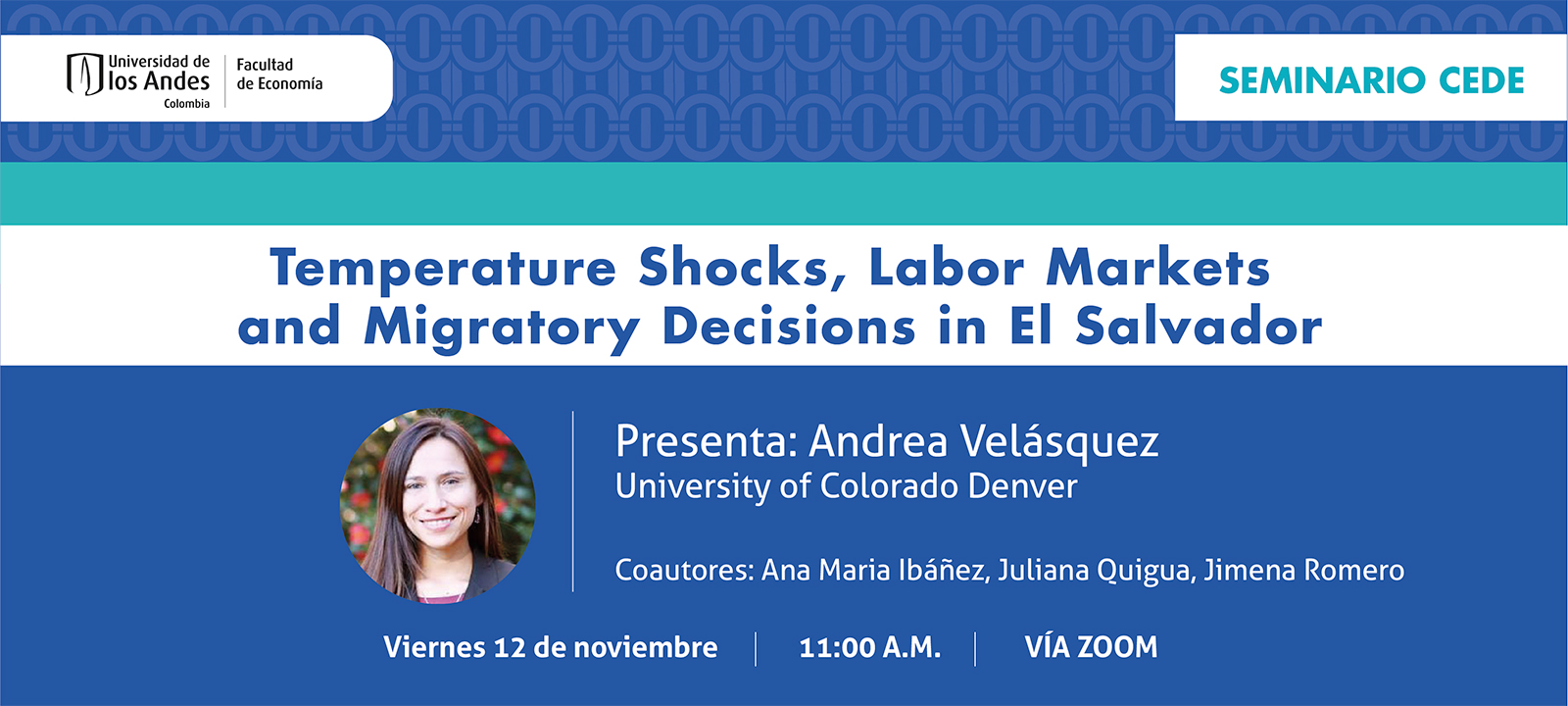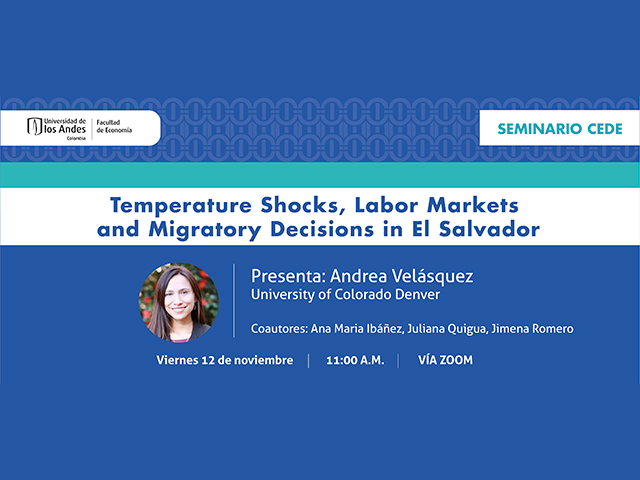Seminario CEDE - Andrea Velásquez

The inflow of migrants from El Salvador to the United States has increased persistently since 1980. In spite of the intensification of immigration policies in the U.S. in the last decades, by 2017, 25% of people born in El Salvador were international migrants. This paper shows that the temperature shocks the country has suffered in the last decade have been an important push-factor. We find that temperature shocks negatively affected both agricultural production in El Salvador and the labor market of agricultural workers. Labor markets act as a transmission mechanism of the negative impact of weather shocks on agricultural workers, who react by migrating internationally or switching to the non-agricultural sector. Moreover, we find that access to remittances and migrant networks help to alleviate the negative effects on production caused by high temperatures and therefore on the need to rely on international migration. Our results suggest that, despite the current anti-immigrant political climate, high temperatures have been an important driver of rising international migration from El Salvador, and highlight that there should be a global responsibility relative to the consequences of climate change.

